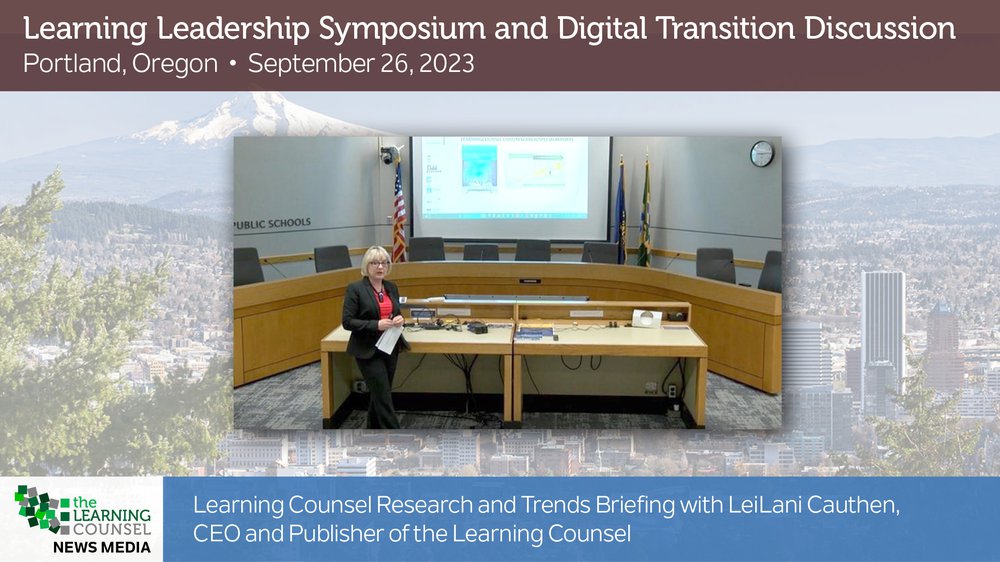LeiLani Cauthen, CEO of Learning Counsel, recently delivered a thought-provoking presentation at Portland Public Schools, urging educators to reimagine the way they approach teaching in the digital age. Cauthen emphasized the need for a fundamental shift in education, aligning it with the evolving culture and technology that shape students' lives outside the classroom.
Cauthen highlighted a significant challenge in education—students entering a traditional classroom environment after growing up in a digital world. The disconnect is palpable when children, accustomed to iPhones and Minecraft, are handed paper documents in school. The lack of engagement, according to Cauthen, is rooted in this dissonance between the students' external experiences and the outdated practices of many educational institutions.
Years ago, Learning Counsel embarked on a mission to bridge this gap by creating a digital dictionary for educators. This resource aimed to decode the language of digital curriculum, introducing terms like avatars and automation. The initiative, initially comprising 71 definitions, has now grown to over 200, reflecting the rapidly evolving landscape of digital education.
Cauthen addressed a critical issue: the lowest quality of going digital is often reduced to a mere document. With 3.3 million teachers nationwide creating their instructional sequences, the burden on educators is immense. The lack of efficient sharing mechanisms results in duplicated efforts and a failure to harness the full potential of technology.
Before the pandemic, Learning Counsel delved into the systemic inequities inherent in the traditional education structure. Cauthen challenged the notion of grouping students solely based on age, advocating for a shift towards a pace-based model that accommodates individual developmental timelines. She drew parallels with corporate America's shift to more flexible, outcome-focused work patterns.
Learning Counsel initiated the Hybrid Logistics Project, a groundbreaking effort to redefine the education workflow. The project aims to incorporate auto-cohorting, allowing students to progress at their pace while leveraging algorithms to organize traditional classwork, discussions, labs, and one-on-one interactions. This model optimizes teacher time, focusing on purposeful interactions rather than classroom management.
Cauthen drew parallels between the evolving education system and broader societal changes, such as the shift to remote work. She emphasized the need for schools to align their flow patterns and togetherness models with contemporary societal norms, ensuring that students feel connected to the outside world.
LeiLani warned of impending challenges from corporate entities seeking to disintermediate traditional public education. The rise of online schools and the potential for voucher systems could significantly reshape the educational landscape. She urged educators to proactively adapt to these changes, aligning their strategies with the evolving needs of students.
Lastly, Cauthen highlighted the unique characteristics of the Alpha Generation, the current student population. With a preference for screens over face-to-face interaction, shorter attention spans, and a different approach to learning, educators must acknowledge and adapt to these shifts to effectively engage and educate this generation.
This presentation serves as a wake-up call for educators to embrace change and adapt their practices to the evolving needs of students. The call to bridge the gap between traditional education and the digital, experience-driven world is more pertinent than ever. As schools navigate the complexities of the digital age, a proactive approach to restructuring educational models and embracing technological advancements will be key to preparing students for success in the 21st century. Tune in below.











